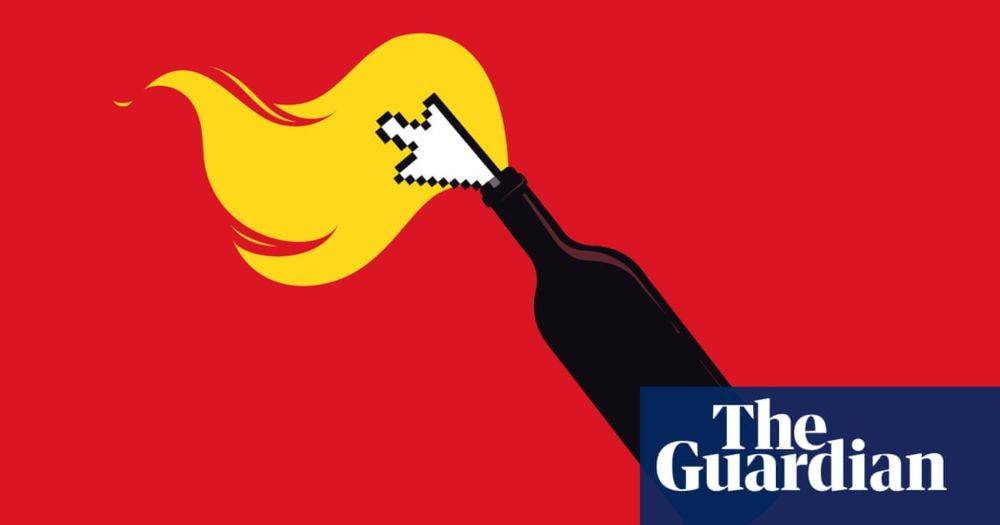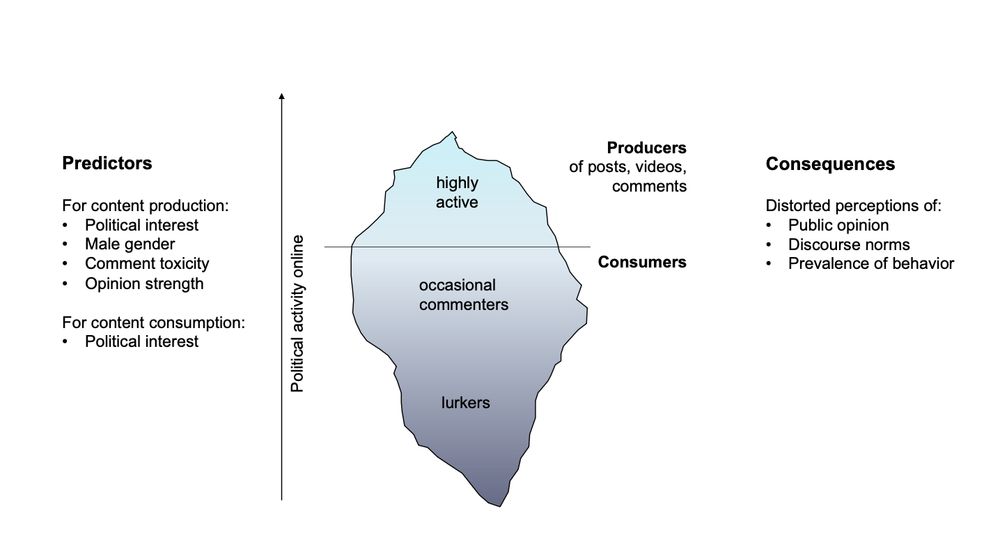
Because super-users are so active, they dominate our collective impression of the internet www.theguardian.com/books/2025/j...
Public universities should be banned from paying these insane buyouts for college coaches.
No pro sports teams are paying $33 million to fire their incompetent coach, so why are colleges paying this kind of money?!?
He went 9-15 in two seasons, including 1-8 in the Big Ten this year. (ESPN first reported).
MSU players meeting called for 2:45. Smith has a $33 million buyout (with offset).
Public universities should be banned from paying these insane buyouts for college coaches.
No pro sports teams are paying $33 million to fire their incompetent coach, so why are colleges paying this kind of money?!?
He was able to keep all these positions for years after he was investigated for sexual harassment.
We urgently need to fix academic societies to stop known harassers from maintaining power over others.

He was able to keep all these positions for years after he was investigated for sexual harassment.
We urgently need to fix academic societies to stop known harassers from maintaining power over others.

Toxic comments are more likely to be expressed, even though most people disagree with them, creating false norms.
osf.io/preprints/so...

Toxic comments are more likely to be expressed, even though most people disagree with them, creating false norms.
osf.io/preprints/so...
Reviewers rank paper submissions from top-20 institutions and non-students higher, but this goes away with blinded reviews.
haruka-uchida.github.io/websitefiles...

Reviewers rank paper submissions from top-20 institutions and non-students higher, but this goes away with blinded reviews.
haruka-uchida.github.io/websitefiles...


www.pnas.org/doi/10.1073/...

www.pnas.org/doi/10.1073/...
A study of 274,316 students finds that low-SES students are much less likely to wait for offers to preferred schools. This led low-SES students to ultimately enroll in programs they liked less and that were less prestigious.
www.pnas.org/doi/10.1073/...
A study of 274,316 students finds that low-SES students are much less likely to wait for offers to preferred schools. This led low-SES students to ultimately enroll in programs they liked less and that were less prestigious.
www.pnas.org/doi/10.1073/...
Thankfully, she and many other women testified against him and something was finally done. This is her take on his case:
Unclear. The article making this claim is... odd.
It describes Festinger and Schachter as leftwing radicals, critiques the political slant of their funding, generally refers to their work as failed...
1/n

Unclear. The article making this claim is... odd.
It describes Festinger and Schachter as leftwing radicals, critiques the political slant of their funding, generally refers to their work as failed...
1/n
After killing many of their neighbors and reducing their collective strength, chimpanzees may have insulated their infants against this threat.
www.pnas.org/doi/10.1073/...

After killing many of their neighbors and reducing their collective strength, chimpanzees may have insulated their infants against this threat.
www.pnas.org/doi/10.1073/...
We explain why politics is ruining the holidays and what you can do about it:
www.powerofusnewsletter.com/p/why-thanks...

We explain why politics is ruining the holidays and what you can do about it:
www.powerofusnewsletter.com/p/why-thanks...
Our attention is the product
There are tutorials in many languages on how to exploit that for profit, not just to stir the pot
AI makes it so easy to exploit now and everyone wins but you

Our attention is the product
There are tutorials in many languages on how to exploit that for profit, not just to stir the pot
AI makes it so easy to exploit now and everyone wins but you
"When Miles Hewstone stepped down in 2019 and it was not possible to receive official information, we confronted him, but he completely denied any misconduct."
ICRN Statement: contactresearch.substack.com/p/icrn-respo...


"When Miles Hewstone stepped down in 2019 and it was not possible to receive official information, we confronted him, but he completely denied any misconduct."


The same kids who are able to get into an elite school will earn just as much $$$ if they get into a state school. The income gain is 0%
But Ivy+ schools offer access to the *most prestigious* jobs, like elite law firms academic.oup.com/qje/advance-...

The same kids who are able to get into an elite school will earn just as much $$$ if they get into a state school. The income gain is 0%
But Ivy+ schools offer access to the *most prestigious* jobs, like elite law firms academic.oup.com/qje/advance-...
People will quickly shape their actions to match those around them...often to the point of absurdity.
People will quickly shape their actions to match those around them...often to the point of absurdity.
But face-to-face confrontations were not any more effective in reducing bias. The social costs of confronting bias are not related to their effectiveness. journals.sagepub.com/doi/full/10....

But face-to-face confrontations were not any more effective in reducing bias. The social costs of confronting bias are not related to their effectiveness. journals.sagepub.com/doi/full/10....
In reality: we gave up reading voluntarily.

In reality: we gave up reading voluntarily.
Social media enveloping traditional media means everything and everyone is now competing in the entertainment market. Boring stuff like policy that affects millions of lives doesn’t stand a chance.

Social media enveloping traditional media means everything and everyone is now competing in the entertainment market. Boring stuff like policy that affects millions of lives doesn’t stand a chance.
Toxic comments are more likely to be expressed, even though most people disagree with them, creating false norms.
osf.io/preprints/so...

Toxic comments are more likely to be expressed, even though most people disagree with them, creating false norms.
osf.io/preprints/so...

